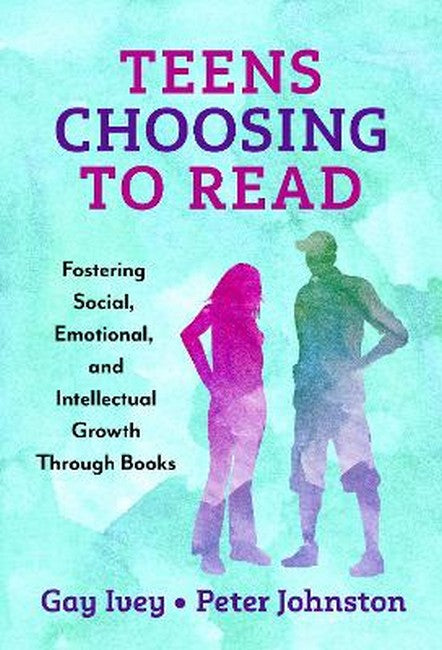Gay Ivey is the William E. Moran Distinguished Professor in Literacy at the University of North Carolina Greensboro and a past president of the Literacy Research Association. Peter Johnston is professor emeritus of literacy teaching and learning at the University at Albany.
Request Academic Copy
Please copy the ISBN for submitting review copy form
Description
Contents (Tentative) Acknowledgments Part I. Engaging Reading, a Social Phenomenon 1. Young Adults Reading Literature (or Not) Teens Can Be Enthusiastic, Engaged Readers Engaging Books The Subtleties of Supporting Teen Development 2. Choosing to Read Good (Meaningful) Books Disturbing Books Autonomy Talk About Books 3. Talk to Me-Cultivating Peer Relationships Supportive Peer Relationships Close Friendships Learning Relationships When Positive Relationships Are Absent The Solution? Engaged Reading 4. Re-seeing Family Families Reading Families and Talk Families, Minds, and Transformation Disturbing Books and Difficult Topics Parent Perspectives on Students' Reading Part II. The Breadth of Teen Development 5. Social-Emotional Development The Social Hub of Development Talking About Thoughts and Feelings On Reflection To Summarize 6. Who Will I Be? Building a Life Narrative Living Into a Character A Reflective Metaphor Narrative as a Cautionary Tale Synthesizing Principles Self-Regulation Reconstructing the Socialized Self Who Am I? Who Do I Want to Be? 7. Moral Development Developing the Moral Self Moral Judgments Recognizing Language as a Potential Act of Violence Multiple Perspectives and Moral Reach So . . . 8. Happiness, Wellbeing, and Other Trivial Matters Gratefulness Loss and Grief More Healing Opportunities Positive Emotions and Wellbeing Feeling, Heard, Understood, and Cared For Sources of Happiness and Wellbeing 9. Reading Competence Reading Strategically Reading Strategically, on Steroids Comprehending Socially Reading Closely Reading: No Solo Act Reading Competently Part III. Negotiating Literature, Teaching, and Teen Development 10. What Do We Think We're Doing? Fizzling Out of Engagement Unraveling of the Social Thread More Teaching Changes Knowing Books and Individuals Negotiating Relationships and Relational Capital 11. Seamless Teaching Seamlessness Characters and Change Inferring, Especially Thoughts and Feelings Literature, Themes, and Life's Dilemmas Teaching About How Words Capture and Shape Thoughts and Feelings Teaching for Intellectual Flexibility 12. Inquiry, Learning, and Authority Foundations of Collaborative Dialogic Inquiry Distributing Authority, Distributing Teaching Teaching for Identity Shifts Teaching: More Than the Sum of its Parts 13. Heckling Concerns of Intellectuals, Philosophers, and the Like Parents' (and Thus Teachers') Concerns 14. The Alchemy of Young Adults' Engagements Among Books Evidence The Work of Conversations The Work of ELA Teachers and Their Books The Socialness of Reading What Do We Want? Appendix A The Study Appendix B Young Adult Books and Other Trade Books Mentioned Index About the Author
"Throughout the text (the authors) demonstrate that engaged reading leads to achievement, and students who succeed academically are more likely to live well-adjusted social, emotional, and moral lives." -Teachers College Record

